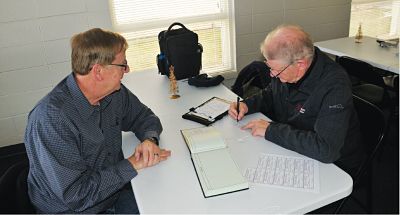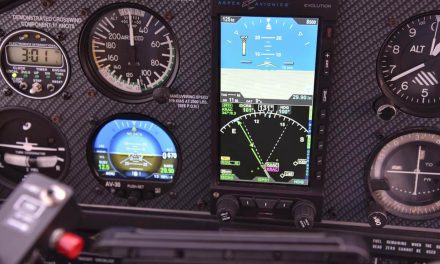 Is This the End of the Third Class Medical?
Is This the End of the Third Class Medical?
A quick history of the Third Class designation and where it’s headed
By Jim Cavanagh
From the FAA website:
FAA Pursues Rulemaking on Third Class Medical Issue
April 2, 2015 –The Federal Aviation Administration (FAA) is beginning a rulemaking project that will consider whether to allow private pilots, in certain instances, to substitute a driver’s license in lieu of a FAA medical certificate. Information about the “Private Pilot Privileges without a Medical Certificate” project will be posted soon in the April report on DOT’s Significant Rulemaking site.
The FAA is still considering a March 20, 2012 petition from the Aircraft Owners and Pilots Association (AOPA) and the Experimental Aircraft Association (EAA) for an exemption from FAA rules to allow AOPA/EAA members flying recreationally (and according to certain operational limitations and restrictions) to conduct certain operations without having an FAA medical certificate. The FAA is considering whether it can provide any relief to the medical requirement, while maintaining safety, prior to completion of the rule.
For years, pilots and support organizations have been lobbying for the elimination of the Third Class Medical Certification requirement that has been in place since the FAA was chartered in 1958. AOPA and the EAA presented their plan two years ago and now, the latest version, called the General Aviation Pilot Protection Act, is sponsored by Senators Boozman (R-AR), Roberts (R-KS), and Moran, (R-KS).
Per the above posting, the FAA will begin a rulemaking project that will actually surpass the original plan by including aircraft that weigh up to 6,000 pounds, have no more than six seats, and make non-commercial VFR flights at up to 14,000 feet at speeds of up to 250 knots. As such, this would include many more airplanes that are larger and more complex than your average Cessna 172 or Piper Cherokee.
As I write, the possibility of achieving this goal is closer than ever before and, for once, it’s not lying languid in some backroom of congress. Rather, this current effort is getting more and more support from pilots and politicos alike.
A Policy Hatched in Controversy
The Third Class Medical has long been a topic of debate. Initially, the existing three-tier structure of the pilot Medical was imposed as a safety measure and directed at the then-increasing scope of pilots who were acquiring ratings and becoming responsible for more and more lives. While there is some logic to this—call it “government logic” or “control logic”—the logic is, nonetheless, flawed. Throughout history, attempts to control something that is relative to each and every individual within a system have proven ineffective. You simply cannot control religious beliefs, political beliefs, morals, or tastes; individuals require individual attention. Sure, you can analyze statistics and trends, but (no pun intended) individuals are all the same—they’re unique in their own needs, desires, and, most certainly, their abilities.
To make matters worse, over time the general public has been indoctrinated into believing that safety in the air is a huge medical concern. The truth, however, is that pilots don’t routinely have heart attacks in their Beech Barons and subsequently crash into Boeing 747s, as presented to the public in the first Airport movie. Similarly, the dreaded “Small Plane Crashes into Crowded Schoolyard during Recess” scenario has never occurred; and, aside from a couple of guys who purposely crashed their plane into homes as an act of revenge, incidents involving anyone’s medical condition simply haven’t come about. In fact, the number of flights that have ended in tragedy for pilot, passenger, or innocent groundling is miniscule—far less than the number of people attacked by sharks or struck by lightning.
There’s also controversy surrounding the merits of the exam process itself. While the tests are theoretically standardized, each doctor has his or her own way of gathering the information required by the FAA. For example, one doctor made me jump on one leg 20 times; another wanted to know if I could touch my toes. The point is, they all have their sensitivities to different aspects of our physicality and perform their exams accordingly. I spoke with one jaded old doctor who said of his colleagues: “My people are good people, but their knowledge is wasted helping me perform Third Class Medicals…I could train a monkey to do them!”
Time for change
Today, we live in an era in which there’s much more recreational, sport, and personal flying done by men and women who have no real desire to haul paying passengers or otherwise fly for a living. Yet, the Third Class designation still encompasses the majority of these pilots and, in spite of the evolving GA landscape, each and every one of them is still mandated to see their Airman’s Medical Examiner (AME)—the same as it’s been for 56 years!
Regrettably, as these pilots begin to have their Medicals denied, they also begin dropping out of flying. When we’re young, we rarely fear failure because the tests are simple, non-invasive, and rather superfluous, with more emphasis on the questions on the form than on the physical condition of the pilot. However, as we age and begin developing heart problems, sleep apnea, diabetes, lung problems, tremors, and an overall lessening of physical condition and ability, we also begin to fear that we may not pass the physical. In extreme cases, we may even begin to lose our minds and develop an insatiable craving for tapioca—but I digress. The fact is; as this fear of failure grows, many pilots begin to doubt their own abilities; and rather than getting denied, they simply drop out. Similarly, many are, more or less, pushed out. Though they may indeed meet FAA muster if they can pass certain tests, the tests they’re now asked to complete are often very expensive and not covered by insurance.
In short, Third Class Med folks fly for fun; when there’s no fun, they quit. The effect this has had on aviation since the late 1980s has been devastating. When they do quit, the market shrinks and prices go up for everyone else while, ironically, aircraft lose value because of the increased supply of available airplanes.
One oft-mentioned fix for all of this is to increase the number of pilots. Sadly, bringing in new pilots is already difficult because of the $6-7,000 it now takes to get a license. Factor in increased costs due to lawsuits, strict FAA regulations, and ever-increasing insurance and fuel expenses—not to mention the costs of maintaining the aviation infrastructure at all government levels—and flying becomes more of a hassle than a form of recreation. As a result, many would-be pilots simply opt to spend their money on less regulated, less expensive endeavors. The real trick may be keeping the pilots we already have, and, to this end, we’re facing a critical time in general aviation history. Will the Third Class Medical be eliminated? If so, can we hang on to a few thousand more pilots each year?
The interviews
With the movement to eliminate the Third Class Medical gaining serious momentum, I stopped by the FAA building at Sun ‘n Fun 2014 to learn more. There, I found a doc as soon as the door opened. I first explained that I just wanted to talk to him about the proposed rule change and to get an idea of the scuttlebutt going on within the FAA. In a less than convivial tone, he replied saying that there wasn’t any scuttlebutt; that they aren’t allowed to talk about it; and that he really didn’t want to talk about it. He also made no bones about the fact that he’d already been approached by countless other pilots who were curious about the proposed change. In the end, he said (quite unequivocally), that any rule change would simply NOT pass. His reason: “Because most of the pilots out there want us in place to watch the OTHER guys.”
In short, he believes that while each pilot feels he or she is perfectly capable of flying safely, these same pilots believe everyone else needs regular examinations. So, in spite of 16,000+ responses to the NPRM during the comment period, each asking for the withdrawal of the Third Class Medical requirement, this guy thinks it’s a non-issue!
Somewhat taken aback by the FAA doc, I looked for another AME to interview. This time, however, I found an AME who was also a pilot and only there to enjoy the fly-in festivities. This older gentleman, who wished to remain anonymous, has been an AME for decades and his views were a stark contrast to the FFA doc’s “snowball’s chance in hades” opinion. Quite to the contrary, he was eager to tell me that he thinks, without doubt, that the rule WILL change and that the Third Class Medical is most definitely on its way out. “It’s archaic and ineffective in the real world,” he said. “There’s nothing in the Third Class exam that gives me the information I need to determine an actual dangerous medical condition that could occur in any patient, flyer or not.”
Having heard that Third Class exams are, in effect, what keeps AMEs in business, I proceeded to ask him about the economic consequences of eliminating the Third Class. He said that very few doctors are AMEs for the money and that the exams are just a miniscule part of their practices. “They do it because they enjoy flying and like pilots. The fee they charge barely pays for the paperwork required by the FAA—even today with the online stuff.” As for the effectiveness of the exams themselves, he agreed with my previously-mentioned, jaded old doctor: “The DOT medical exam for over-the-road truckers is much more stringent…and look at some of those guys!”
What does it all mean? And where do we go from here?
So while the FAA doc I spoke with said no congressman or senator would sign their name to a bill that eliminates safety, the reality is that well over 50 senators and representatives have already signed the bill. In fact, many are pilots themselves and two are senators from the highly-influential state of Kansas. Plus, AOPA is giving almost daily reports on its progress, and pilots at every coffee urn at every airport in the country are talking about it. There’s most definitely life in this effort!
Well-known General Aviation pilot and salvage specialist, Steve Wentworth, applauds the news. “Pilots are selling their airplanes for parts or not repairing/maintaining them for fear that their money will be wasted,” he said. “We need activity, which means we need pilots if we are going to keep aviation viable and keep the fleet stable and safe. Plus, it will keep the value up on our airplanes.”
This latter point is particularly important as many older pilots own one or more aircraft (at least partially) as a retirement investment. Aging pilots are the mainstay of today’s aviation. This group of men and women has embraced aviation not just as an activity, but as a lifestyle. For the most part, older pilots are safe, skilled, and have countless hours of experience. The fact that they have made it this far only underscores their exceptional planning and consideration and their natural abilities. They should be considered a valuable resource, not a simple demographic.
Naturally, there will be speed bumps along the way. We all know how easy it is to fly. We also know that it’s more relaxing than it is stressful. However, stress can be induced in many different ways. Should the movement succeed and the Third Class Medical requirement is indeed revoked, it will become especially important that those pilots – now able to fly with only a current driver’s license – be aware of any physical or mental conditions that might not be conducive to flight. We all know when we are under the weather or having a bad day, but these instances only increase as the undeniable process of aging compromises our health and abilities.
For example: What if, in the past, a guy has had his ticket pulled for a kidney stone, heart problem, or something equally serious? His driver’s license wasn’t pulled, but his flight status was nixed. Undoubtedly, there will be machinations on the parts of some to keep such a person from flying. Conversely, there will likely be efforts from others to have them reviewed and allowed to continue playing pilot. It might come to pass that older pilots will require, at least, some sort of physical on a regular basis to let them know where they are and help with their own decision making. At this point it’s merely conjecture, but moving forward, a lot of items like this will need to be addressed and rectified. Of course, a huge underlying fear is that such decisions, when made by conservative government employees, could be the stumbling block to the whole thing.
Hopefully, being mature judges of our own abilities may soon be the new FAA requirement for maintaining our licenses. With continued support—and given the chance—I think we can do it. Wish us all luck!





